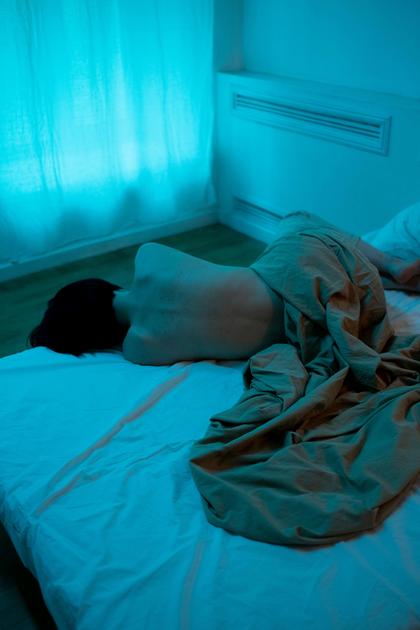Experiencing hair loss during menopause can be challenging, especially when combined with life’s stressful events. Many women, especially those over 30, silently navigate through changes that disrupt their well-being. The connection between stress, menopause, and hair loss is often overlooked, but understanding this relationship can help you regain control. In this blog, we will delve into the science behind these phenomena and explore effective strategies for managing them.
The Calm Reset — 7 Days to Feel Steady, Kind & In Control Again - Only $2.99
Gentle guidance trusted by our community.
Understanding Hair Loss in Women: The Basics
Hair loss in women is often more than just a cosmetic issue; it can deeply affect self-esteem and emotional well-being. Factors like genetics, hormonal changes, and aging can contribute to this condition. Women often begin experiencing hair thinning or loss around menopause due to fluctuating hormone levels. Understanding this biological process is crucial for finding solutions.
Menopause: What to Expect During this Transition
Menopause marks a significant phase in every woman’s life. Generally occurring between the ages of 45 and 55, menopause brings about several physical and psychological changes. Symptoms can range from hot flashes and night sweats to mood swings and fatigue. For many women, this transition can feel overwhelming, especially when compounded by stress.
How Stress Can Complicate Menopause Symptoms
Stress is a common companion during menopause and can exacerbate symptoms. When stressed, the body produces more cortisol, which can lead to hair loss in women. Furthermore, chronic stress can disrupt sleep patterns, leading to increased fatigue and irritability. Recognizing stress as a factor can empower women to seek relief and better manage their symptoms.
The Science Behind Hormonal Changes and Hair Loss
Hormonal changes during menopause can directly cause hair loss. As estrogen levels decline, hair follicles may shrink, leading to thinner hair. Understanding the science behind this can help women take proactive steps. Research shows that restoring balance to hormones, through natural remedies or lifestyle changes, can alleviate some of the symptoms associated with hair loss.
Common Stressful Life Events and Their Impact on Hair Health
Life events such as divorce, job loss, and the death of a loved one can significantly impact a woman’s mental and physical health, contributing to hair loss. These events can increase stress levels and lead to emotional challenges. Recognizing the connection between life stressors and hair health can inspire women to prioritize self-care during tough times.
Natural Remedies for Hair Loss During Menopause
Many women seek natural remedies to combat hair loss during menopause. Options may include:
- Essential Oils: Oils like rosemary and lavender can promote hair growth.
- Biotin Supplements: Biotin can improve hair health and strengthen strands.
- Herbal Treatments: Herbs like saw palmetto may help balance hormones.
Integrating these remedies can be a gentle way to address hair loss while respecting the body’s natural processes.
Managing Stress: Techniques for the Modern Woman
Managing stress is critical for women facing menopause and hair loss. Effective techniques include:
- Meditation: Regular meditation can reduce stress and promote relaxation.
- Yoga: Yoga enhances physical strength while calming the mind.
- Breathwork: Focusing on breath can help ground emotions and reduce anxiety.
Implementing these practices can lead to improved overall well-being and hair health.
The Role of Nutrition in Hair and Hormonal Health
Nutritional choices can significantly impact hair and hormonal health. A well-balanced diet rich in:
- Proteins: Essential for hair growth.
- Healthy Fats: Omega-3s support scalp health.
- Vitamins: Vitamins A, C, D, and E are crucial for maintaining healthy hair.
Aiming for a nutrient-dense diet can facilitate hormonal balance and support hair vitality.
Finding Support: Community and Resources for Women
Seeking support is vital for women dealing with menopause and hair loss. Connecting with peers through support groups and online communities can provide encouragement and shared experiences. Additionally, professional resources like therapists or dietitians can offer tailored strategies for managing this life phase.
Empowering Yourself: Steps to Take Control of Your Wellness
Taking control of one’s wellness can be empowering. Here are actionable steps women can consider:
- Educate Yourself: Learn about menopause and its effects.
- Seek Professional Help: Consultation with a healthcare provider can clarify options.
- Prioritize Self-Care: Taking time for oneself can have profound effects.
By taking proactive steps, women can navigate menopause and its challenges more gracefully.
Many women are finding effective solutions for their wellness challenges, overcoming fatigue, hormonal imbalances, and more without relying on heavy medications. See how many women are solving this without heavy medications.
While hair loss during menopause can feel daunting, it’s important to remember that there are paths to improvement. With the right knowledge and support, women can regain control over their hair and health, just like many others have done before. Don’t hesitate to explore your options and take the first step towards reclaiming your wellness.
The Calm Reset — 7 Days to Feel Steady, Kind & In Control Again - Only $2.99
Gentle guidance trusted by our community.







